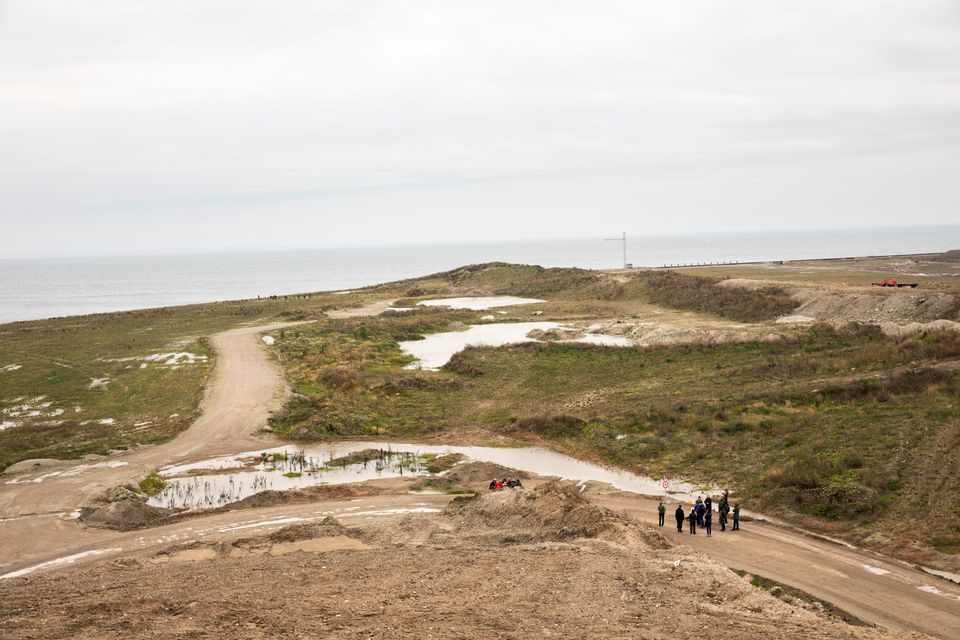Plans are afoot to build a massive international student city in Copenhagen that could propel the city into becoming one of the world’s top ten student destinations.
Inspired by the Cité Internationale Universitaire de Paris (CIUP), the international student city in the French capital, which was established in 1925 and today hosts around 12,000 students annually from nearly 140 nations in its 40 residential buildings, the International Student City of Copenhagen (ISCC) project vision is to provide housing for upwards of 5,000 students.
If all goes according to plan, ISCC will be situated on a 150,000 square metre plot of land next to Sundby Metro station in the developing Ørestad area of Amager. The location is attractive to the ISCC group due to its proximity to the city, universities, the Metro. There is also available space for possible future expansion.

“It has to be next to a Metro station to provide access to the students, and it’s close to the airport as well,” Jørgen Rossen, a civil engineer and one of the project founders, said. “It takes twenty minutes to get to CBS [Copenhagen Business School] and it is two stops from the University of Copenhagen. It is also next to a youth hostel, so even if the student comes a week or two early, they can stay there at a reasonable price.”
The plan is that different nations would build their own student houses for at least 100 students within the student city. The building designs should reflect the nation’s architectural traditions and the idea is to have an exchange agreement among the various international houses. Half of the students from each individual country will stay in their own ‘national’ house, will be spread among the other houses in an effort to mix cultures and traditions together.
But before construction can begin, 800 million kroner must be raised to secure the land, which is owned by city and port developers, By & Havn, and to build a large residential building, concert hall, library, sports facility, cafeteria and lecture halls.
The financial situation is the main concern for the ISCC group, which plans to hit up both Danish and international sponsors.
The project was founded by seven prominent people in Danish politics and business life, including: noted philanthropist and engineer Jørgen Rossen; the former foreign and culture minister, Per Stig Møller (Konservative); the Danish ambassador to France, Anne Dorte Riggelsen; and architect Louis Becker.
”This is perhaps not even a Danish project, it is a global project,” Riggelsen said. “It would be so meaningful in so many ways and we are looking for people, organisations and nations who can share our vision.”
Despite the difficulty of raising significant funds in the midst of a global economic downturn, Riggelsen maintained that the far-reaching positive effects of the international city can transcend the current financial turmoil.
“Of course the international crisis is a difficult thing and in this part of the world you usually go to the government for money. But the idea is to appeal to the civil society, to the companies, organisations, personalities and other movers and shakers,” Riggelsen argued. “It is in a crisis that you find the energy to enter a new era and this is the kind of project that would help Denmark be international, from the bottom up, because that’s what happens when young international people come to our strong culture and enrich it while simultaneously taking things from it.”
As a destination for international students, Copenhagen was only ranked number 39 out of 98 cities by the leading global career and education network QS. The city scored high marks for the quality of living, but faded in affordability, employer activity and student interaction. An international student city would address many of the city’s shortcomings, particularly problems in finding accommodation.
 “With our high level of professors, research institutes and universities, Denmark should be one of the top ten finest university cities,” Rossen contended. “And how is that going to happen if the students can’t even find a place to live? Some students simply leave again after spending five or six weeks searching for a room.”
“With our high level of professors, research institutes and universities, Denmark should be one of the top ten finest university cities,” Rossen contended. “And how is that going to happen if the students can’t even find a place to live? Some students simply leave again after spending five or six weeks searching for a room.”
The project has already gained significant support from a number of sectors that recognise the potential Copenhagen offers as an international hub in Europe.
The University of Copenhagen, CBS and Aalborg University are among the universities that have backed the project, and the student advocacy organisation Danske Studerendes Fællesråd and the Liberal Alliance political party have also embraced it.
“The University of Copenhagen welcomes the ISCC initiative as a new and constructive idea to improve the accommodation situation for foreign students in Copenhagen,” the University of Copenhagen wrote in its letter of support. “The lack of reasonably priced accommodation is a growing obstacle in the attempt to attract the top international students to Copenhagen.”
There are 18,000 foreign students in Copenhagen this year and the prognosis is for 30,000 to be in the city by the year 2025. There are about 3,500 Norwegians, 2,000 Swedes, 1,500 Germans and 1,200 from China, to mention a few.
Also supporting ISCC supporter is the City Council and Copenhagen’s mayor, Frank Jensen (Socialdemokraterne), who has frequently highlighted the need for Copenhagen to become more attractive and accommodating to international workers and students looking to move to the city.
“The ISCC is an exciting initiative that will support Copenhagen being an international city of knowledge. If the ISCC is carried out, it will help achieve one of Copenhagen’s most significant goals: to have 3,000 more homes for youths and students by 2025. Thus, the City Council will be more than happy for the ISCC initiative to be achieved,” Frank Jensen declared in his letter of support.
Rossen hopes to have raised the required funds and to have begun construction of the ISCC in about 18-24 months.













